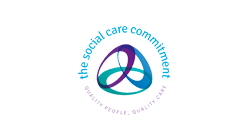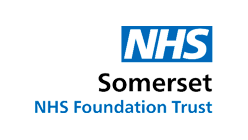FAQ
If a member of our family or a friend suffers from a mental illness, it is important to know how to support them and recognise the signs and symptoms

Mental illness is not discriminatory, and it can affect anyone. Around one in four people experience a change in their mental health at some point in their life.
Despite such a large number of people experiencing mental health problems, there remains an undeniable stigma surrounding mental illness, a stigma which stems from a lack of understanding and knowledge about the experiences of people suffering a mental illness. Having a mental illness is nothing to be ashamed or embarrassed of and it’s ok not to be ok. Finding the right help and support is important. By sharing our personal encounters with mental health problems, we can encourage more people to start talking about mental health, and the more people talk, the more people will gain a better understanding.
If you have noticed changes in the way you are thinking or feeling over the past few weeks or months that concern you or cause you distress, it is recommended that you consider going to see a GP.
Or if you have any concerns about a member of your family or a friend you can also seek advice and support from a medical professional.
Anxiety and Panic attacks
Anxiety is a feeling when we are worried, tense, or afraid, especially about things that are about to happen, or which we think may happen in the future. It is a natural human response we feel when we are under threat and it can be experienced through our thoughts, feelings, and physical sensations.
- A feeling of being tense, nervous, or unable to relax.
- Having a sense of dread or fearing the worst that something will happen.
- A feeling like the world is speeding up or slowing down.
- A feeling of paranoia like other people can see you are anxious and are looking at you.
- Difficulties and the ability to stop worrying, and a feeling that bad things will happen if you stop worrying.
- Being worried about anxiety itself, perhaps maybe worrying about when panic attacks might happen.
- Requiring lots of reassurance from other people or worried that people are angry or upset with you.
- Low mood and depression.
- Thinking a lot about bad experiences, past or present or thinking over a situation again and again.
- Depersonalisation – which means you may feel disconnected from your mind or body, e.g., like you are a character that you are watching in a television programme.
A panic attack is a sudden feeling of intense fear that can cause a severe physical reaction when there is no real danger or cause. A panic attack can feel very frightening and when they occur, you might feel like you are losing control, having a heart attack, or even dying. Although panic attacks are not life threatening, they can be debilitating and can affect your quality of life, however with the right help and support, treatment can be effective.
- Feeling faint
- Nausea
- Sweating
- Chills
- A racing heartbeat
- Chest pains
- A shortness of breath
- Dizziness
- Shaking and trembling
- A choking sensation
- A feeling of dread and a fear of dying.
- Dissociation – feeling that you are not connected to your body.
- Pins and needles and tinging sensations
- A dry mouth
- A need to go to the toilet.
It is also important to be aware that some of these symptoms can also be signs of other conditions or problems, so it is wise to also book an appointment with your GP.
Depression
We all experience days of feeling down and sad which is completely normal, but with depression it can be persistent and can last for weeks or months and not just for a few days.
Some people think that depression is trivial and is not a genuine health condition and this is not the case at all. Depression is a real illness with real symptoms, and it is not a sign of weakness or something we can just “snap out of” by “pulling ourselves together.”
Depression can be gradual, and it can make it difficult to notice that something is wrong, and many people try to cope with these symptoms without realising that something is wrong. Sometimes family and friends can notice this more and suggest that something is not quite right.
- Continuous low mood or sadness.
- A lack of motivation to do everyday tasks and/or socialising.
- Having low self esteem.
- Feeling hopeless or helpless.
- Feelings of guilt.
- Difficulty in making decisions.
- Feeling tearful.
- Being irritable with others.
- Feeling withdrawn from others.
- Feeling withdrawn from society.
- Not sleeping properly – too much or too little.
- Not eating and drinking properly.
- Poor hygiene.
- Not getting any enjoyment from life.
- Experiencing suicidal thoughts or thoughts of wanting to harm yourself.
Bipolar disorder
Bipolar disorder previously known as manic depression is a mental health problem that mainly effects our mood with periods of depression and periods of abnormal elevated mood that lasts from days to weeks each.
People with bipolar disorder may have trouble managing everyday life tasks at school or work and maintaining relationships, there is no cure for this but with the right help and support there are treatment options available that can be effective to manage symptoms.
- Spending money excessively and impulse buying.
- Drug use.
- Unprotected sex.
- Deep sadness and low mood.
- A feeling of hopelessness.
- A lack of energy.
- A lack of interest in activities that are normally enjoyed.
- Not sleeping properly – Too much or too little.
- Experiencing Suicidal thoughts or thoughts of wanting to harm yourself.
Although it is not a rare condition, bipolar disorder can be difficult to diagnose because of the varied symptoms.
Borderline personality Disorder
Borderline personality disorder is also known as emotionally unstable personality disorder (EUPD) and is a psychological condition that is characterised by unstable moods, emotions, relationships, and behaviour. It can begin in adolescence or early adulthood, continued over many years. When left untreated it can cause a great deal of distress, however with the right help and support, treatment for BPD can help significantly.
- A fear of abandonment
- Unstable relationships
- Unclear or shifting self-image
- Impulsive, self-destructive behaviours
- Self-harm
- Extreme emotional swings
- A feeling of emptiness
- Explosive anger
- Feeling suspicious and not in touch with reality
Anti-Social Personality Disorder
A personality disorder is when a person thinks, feels behaves and relates to other people differently. A person with a personality disorder finds it difficult perceiving and relating to situations and people and this can cause problems with making and maintaining relationships, social activities, work, and school. This type of personality disorder is different to an emotionally unstable personality disorder.
In some cases, people may not realise that they have a personality disorder because their way of thinking and rationalising seems natural to them.
Symptoms vary depending on the type of personality disorder.
- Can feel easily frustrated.
- Difficulty in controlling anger.
- They can blame others for problems in their life.
- Aggressive and violent behaviour
- Causing upset to others.
- They may experience other mental health conditions such as depression and substance misuse.
Treatment and support for someone suffering with a personality disorder usually involves a talking therapy.
Obsessive compulsive disorder (OCD)
Obsessive compulsive disorder is a pattern of unwanted thoughts and fears (obsessions) that can lead to a repetition of behaviours (compulsions)
These obsessions and compulsions interfere with everyday life and activities and can cause significant distress.
Some people try to ignore the obsessions; however, this can increase distress and anxiety, this can cause the person to perform certain rituals to try to minimise the stress and anxiety they experience.
Despite trying to ignore these thoughts and urges, they reoccur, and the ritual is started again. Known as the cycle of OCD.
Obsessive compulsive disorder is often centred around themes e.g., the feeling of being contaminated with germs, so to ease these fears of being contaminated they may compulsively wash their hands time and time again resulting in their hands to become sore and chapped.
- A fear of contamination and dirt e.g., being touched or touching something that is contaminated.
- Needing to organise things orderly and symmetrically.
- Aggressive thoughts about losing control and causing harm to yourself or others.
- Experiencing unwanted thoughts including aggression, sexual or religious subjects.
- Washing and cleaning
- Checking
- Counting
- Orderliness
- Following a strict routine
- Requiring reassurance
Post-traumatic stress disorder (PTSD)
Post-traumatic stress disorder is a mental health condition that is triggered by a traumatic or series of traumatic events, that has either been experienced or witnessed.
Symptoms may include experiencing flashbacks, nightmares and severe anxiety and having uncontrollable thoughts about the event.
Most people who experience going through a traumatic event eventually get better with time and support. But sometimes when the symptoms get worse, or last for a long period of time. It may interfere with everyday functioning or the inability to cope, it may be PTSD.
- Reoccurring, unwanted distressing memories of the traumatic event.
- Reliving the event as if it were happening (flashbacks)
- Experiencing upsetting dreams or nightmares about the event.
- Suffering with severe emotional distress or a physical reaction to something that reminds you of the event.
- Negative changes in thinking and mood e.g., negative thoughts about yourself, other people and the world, difficulty in maintaining close relationships and feeling detached from family and friends.
- Being easily frightened and startled
- Always feeling the need to be on guard from danger.
- Difficulty in sleeping – too much or too little.
- Difficulty in concentrating.
- Overwhelming guilt or shame
- Experiencing Suicidal thoughts or thoughts of wanting to harm yourself.
Psychosis
Psychosis is a condition that affects the way our brain processes information. It causes you to lose touch with reality. We might see, hear, or believe things that are not real. Psychosis is a symptom, not an illness, however a mental or physical illness, substance abuse, or extreme stress or trauma can cause it.
- Anxiety
- Depression
- Delusions
- Hallucinations
- Difficulty concentrating
- Low mood
- Not sleeping properly – too much or not enough
- Suspicion
- Experiencing suicidal thoughts or thoughts of wanting to harm yourself.
- Hallucinations and delusions are two very different symptoms that are both often experienced by a person suffering with psychosis and it feels very real for the person experiencing them.
A delusion is when a person has a strong belief in something that is not true. When someone suffer with persecutory delusions, they will believe that a group or organization wants to hurt and cause harm to them and they firmly believe this to be the case despite the lack of proof. This type of delusion is a form of paranoia which is often seen in schizophrenia and other mental health illnesses.
Another form of a delusion is a grandiose delusion which means that they believe that they have power or authority e.g., they may believe that they are the prime minister of this country.
Hallucinations is when a person can see, smell, hear taste or feel things that do not actually exist e.g., feeling sensations in the body, such as a crawling sensation over the skin or hearing sounds like music, footsteps or windows and doors banging.
Hallucinations and delusions can both be a very frightening experience and it can cause severe distress and a change in behaviour.
Schizophrenia
Schizophrenia is a mental health illness which is a type of psychosis. It is when reality is interpreted very differently, and it can affect the way we think which can result in a combination of hallucinations and delusions. Schizophrenia is a common illness and 1 in 100 people will develop this.
- Hallucinations – seeing or hearing things that do not exist.
- Delusions – unrealistic beliefs which are not true to reality.
- Disorganised thinking based on hallucinations and delusions.
- A lack of interest in activities that are normally enjoyed.
- Poor personal hygiene
- Withdrawing from people, including family and friends.
- Experiencing Suicidal thoughts or thoughts of wanting to harm yourself.
Due to media portrayal, some people have been led to believe that people who suffer with schizophrenia can be violent, however this is not the case at all. It does not cause anyone to be violent and people with schizophrenia do not have a split personality either.
Schizoaffective disorder
Schizoaffective disorder is a mental health disorder that is combined by schizophrenia symptoms such as hallucinations and delusions and mood disorder symptoms such as depression and mania.
Signs and symptoms of Schizoaffective disorder depend on the type, meaning that it could include depression or mania. The cause of Schizoaffective disorder is still being researched; however, genetics are a likely factor.
- Hallucinations – seeing or hearing things that do not exist.
- Delusions – unrealistic beliefs which are not true to reality.
- Communication and speech are impaired.
- Displays of unusual or bizarre behaviour.
- Feeling depressed such as feeling empty, sad, or worthless.
- Periods of mania, with an increase of energy and requiring very little sleep over several days and displaying behaviours that are out of character.
- Poor personal hygiene and physical appearance
- Difficulty to functional academically and socially.
People with Schizoaffective disorder are also at an increased risk of:
- Experiencing Suicidal thoughts or thoughts of wanting to harm yourself.
- Conflicts with family and friends
- Isolation
- Anxiety disorders
- Unemployment
- Alcohol or drug use problems
- Poor health
- Poverty and homelessness
Eating disorders
An eating disorder is a mental illness which involves an unhealthy relationship around food. This could be eating too much or too little or you could become obsessed with food and eating patterns.
There are 3 main types of eating disorder which are:
- Anorexia – keeping weight as low as possible. Thinking you are overweight even though people tell you that you are dangerously thin.
- Bulimia – When an unhealthy eating pattern is adopted which involves eating lots of food and doing something to yourself to prevent you from gaining weight which could be vomiting, taking laxatives or over exercising. This overeating is also known as binging and what is done after is called purging.
- Binge eating – When a substantial amount of food is eaten in a short period of time on a regular basis, like bulimia you will not feel in control of your eating and it is likely to cause distress which may make you feel disconnected and struggle to remember what you have eaten.
- Feeling a constant worry of your weight and body shape.
- Avoiding socialising if you think food will be involved.
- Eating very little or too much food.
- Deliberately making yourself vomit or taking laxatives after eating.
- Over exercising
- Changes in mood
- Experience strict habits or routines around food.
There may also be physical symptoms which may include:
- Feeling cold
- Dizziness
- Tiredness
- Experiencing problems digesting food.
- Body weight may be remarkably high or low for your height and age.
- Irregular periods for girls and women.
Phobias
A phobia is a type of anxiety disorder and it is an overwhelming fear of objects or situations that pose little danger which causes anxiety and avoidance. Not all phobias need treatment though, however if a specific phobia affects your daily life this can be debilitating. There are several therapies available that can help and overcome these fears – often permanently.
- Situations such as going out, flying in airplanes, enclosed spaces or going to school or work.
- Nature e.g., thunderstorms or heights.
- Animals or insects
- Blood, infection, becoming ill or injury and the possible need for medical procedures including needles.
- Others such as choking, vomiting and loud noises.
- Diabetes
- Obesity
- Depression and Anxiety
- Skin problems such as acne or eczema
- Menstrual problems in girls and women






